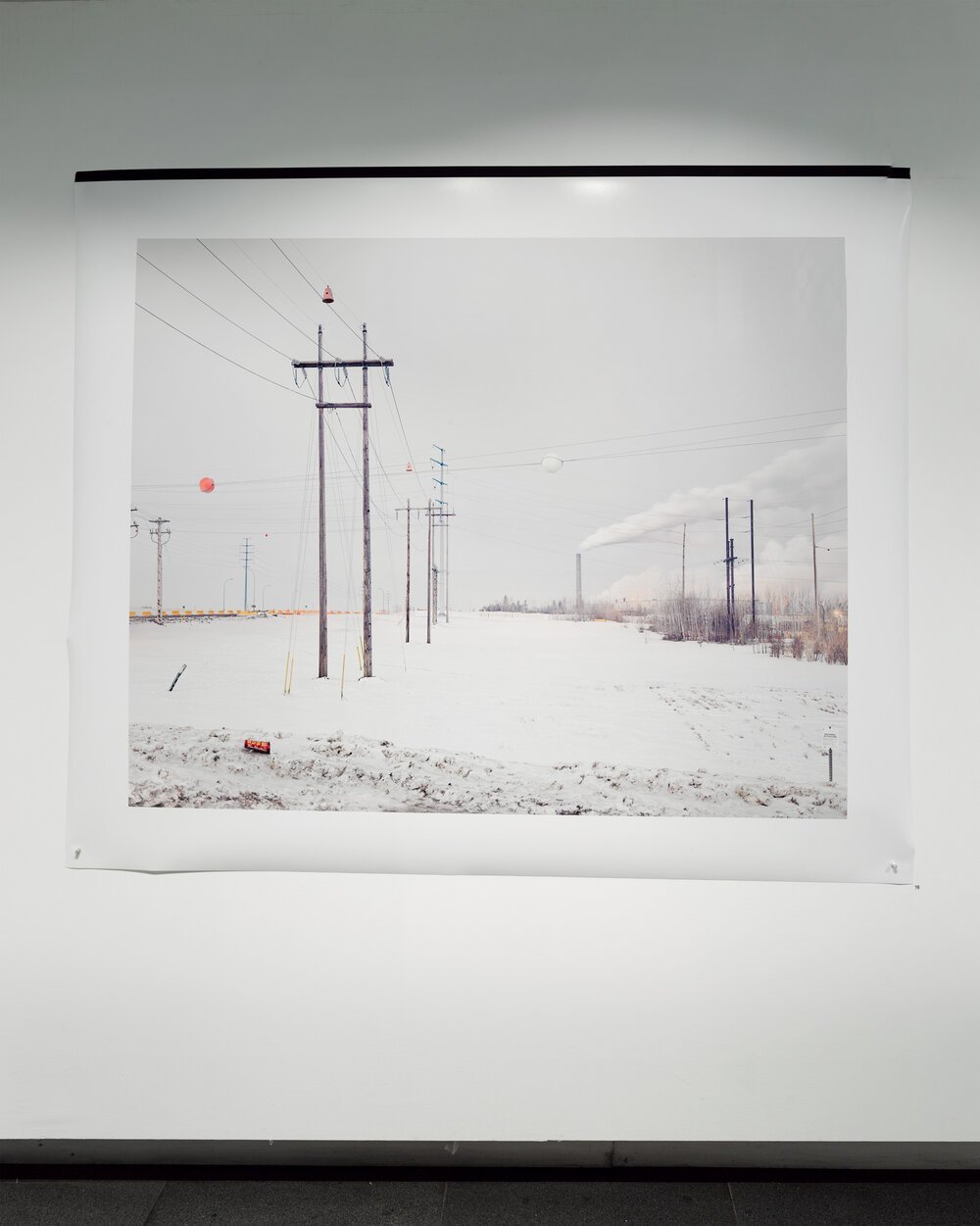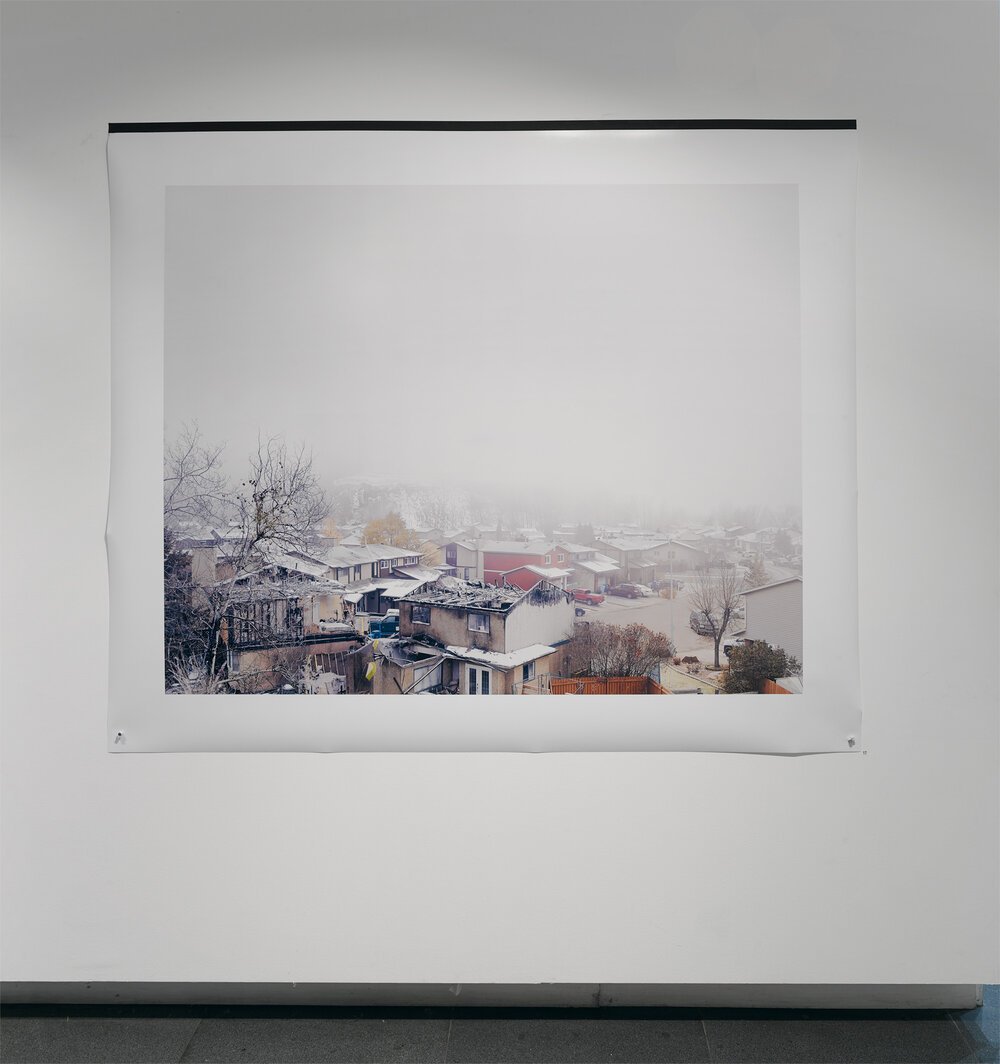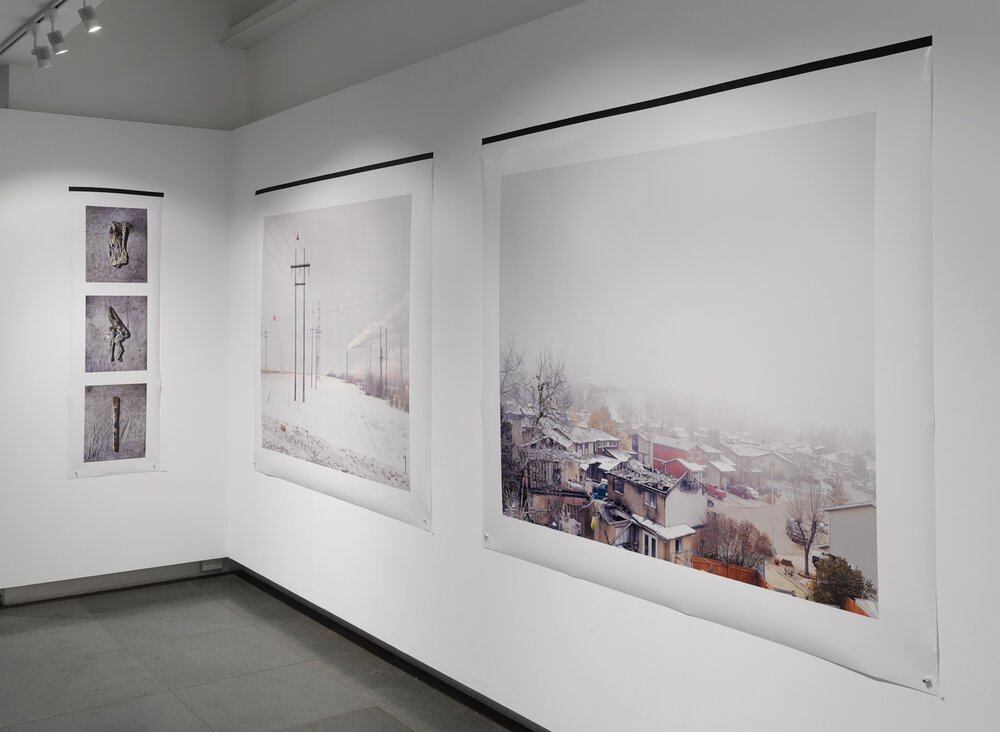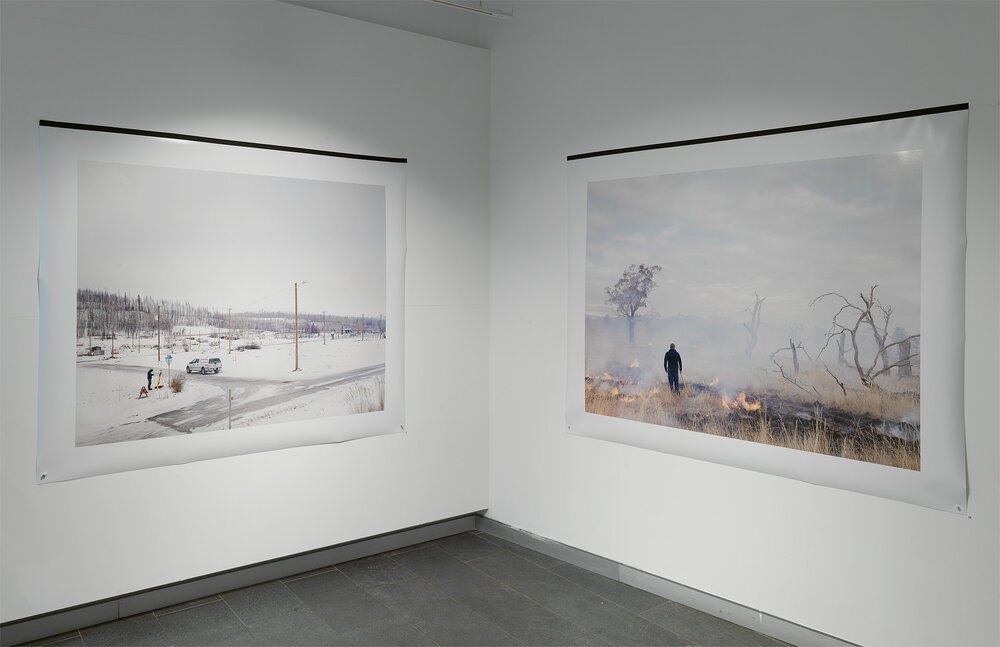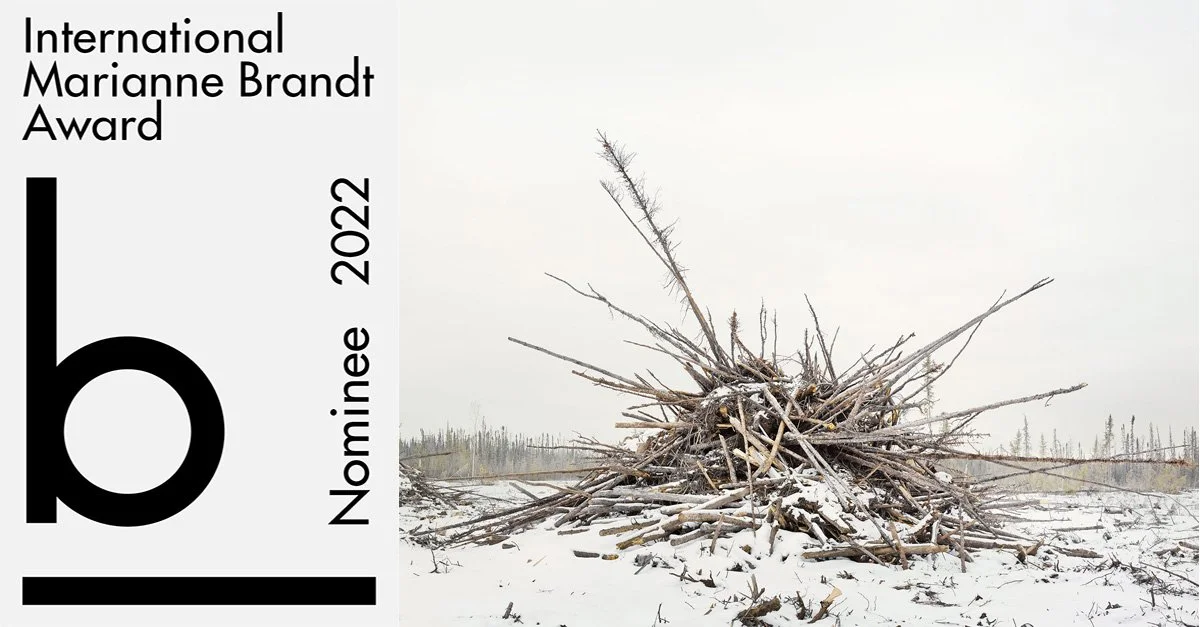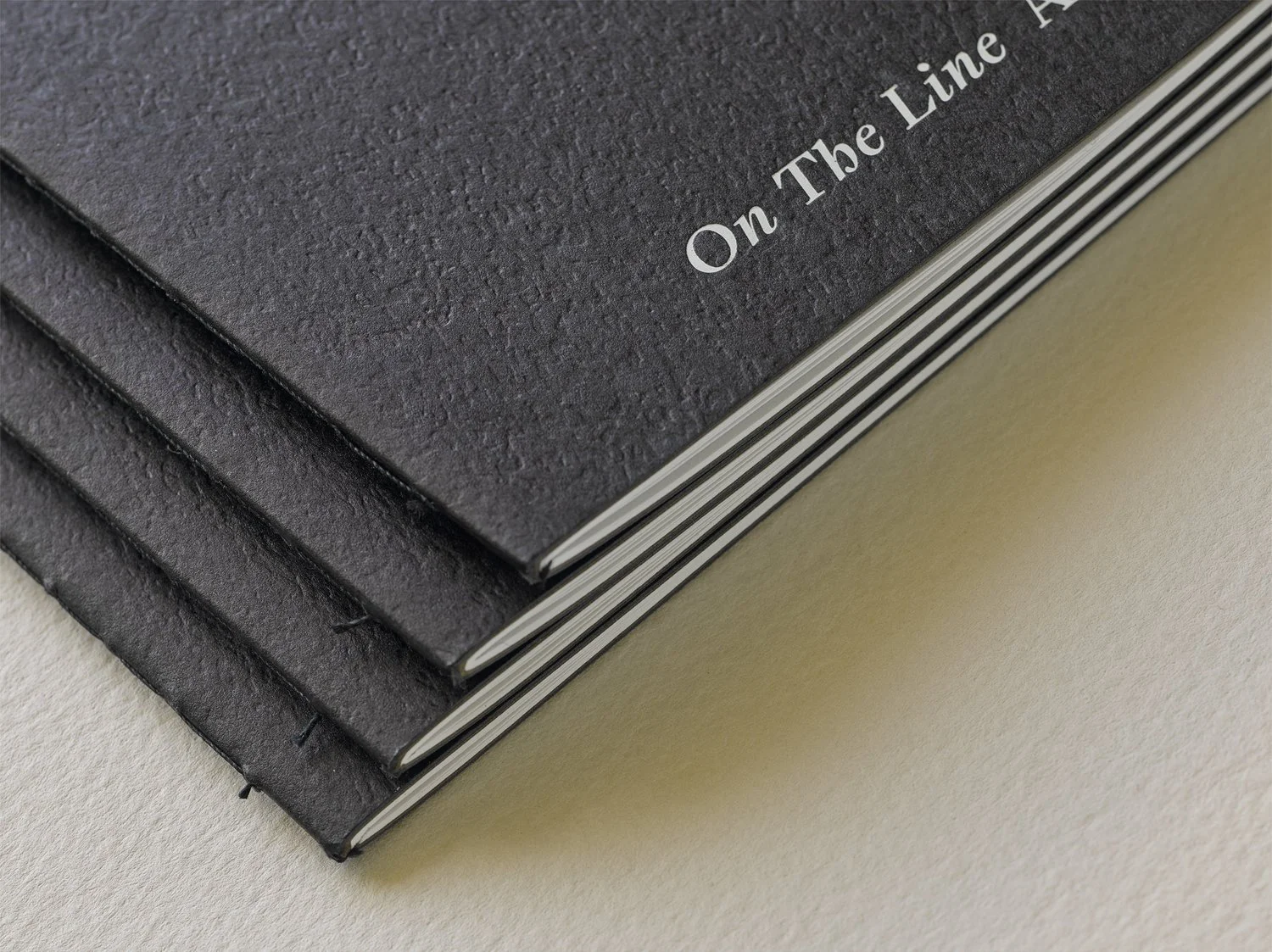Last Man, 2017. © Alan McFetridge
SONGS OF THE DEAD
Songs of the Dead is a photographic and linguistic exploration of the aftermath of a devastating fire that impacted the community of Fort McMurray in Alberta, Canada on the 3rd of May 2016. Six months after the fire, stimulated by media coverage and reflecting on the discourse surrounding dispossession and the environment, the project commenced at ground level with the support of a Royal Photographic Society Environmental Awareness Bursary in a region inhabited by Anishinaabe located within Treaty 8 Territory, the traditional lands of the Cree, Dene and unceded territory of the Métis.
The project is centred in the wake of a significant fire event; however, it is also about people and ecosystems. By traversing discussions on ethics within documentary photography and exploring the history Aftermath of this medium, we argue how photography can better address socio-ecological issues within climate change through poetics.
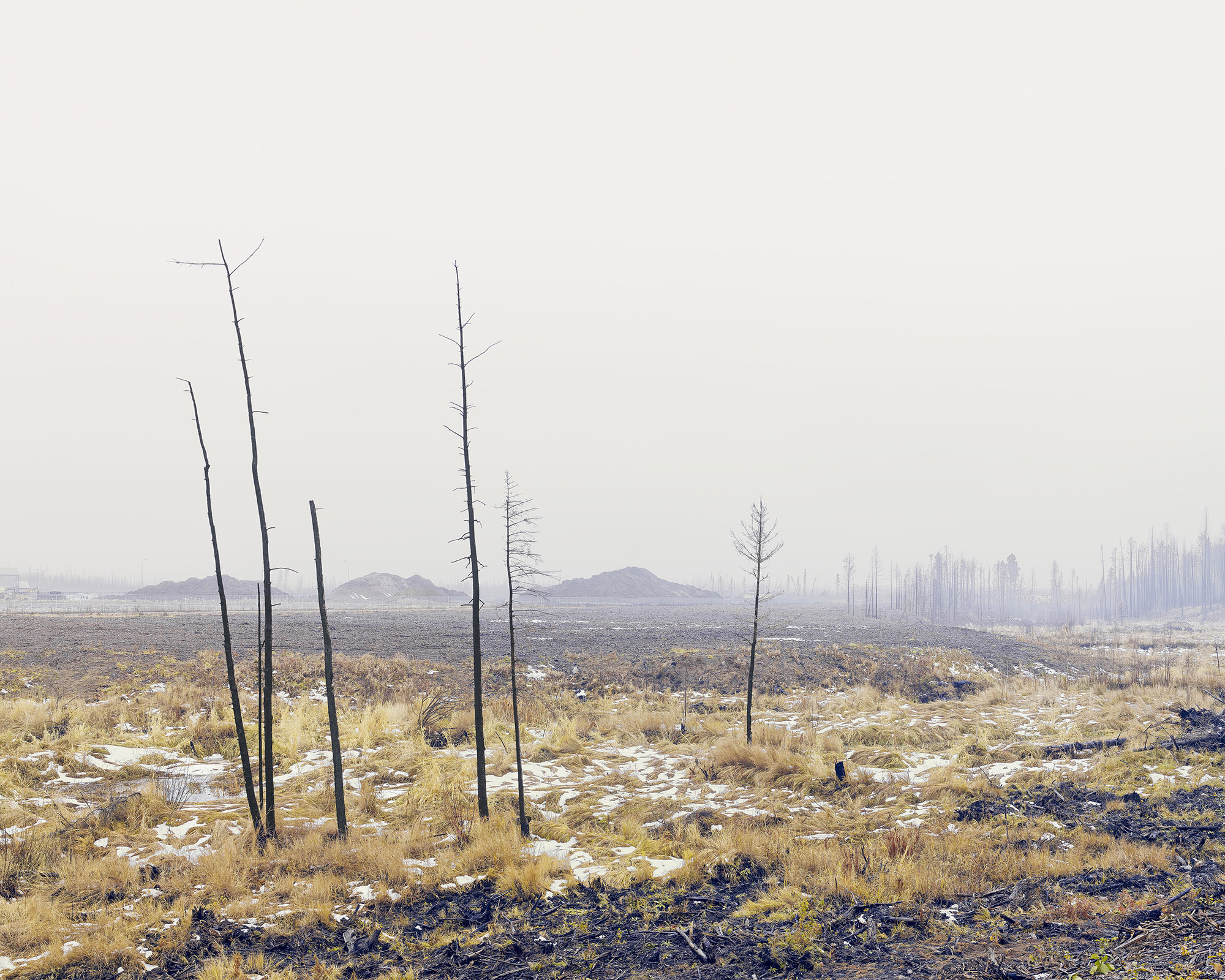
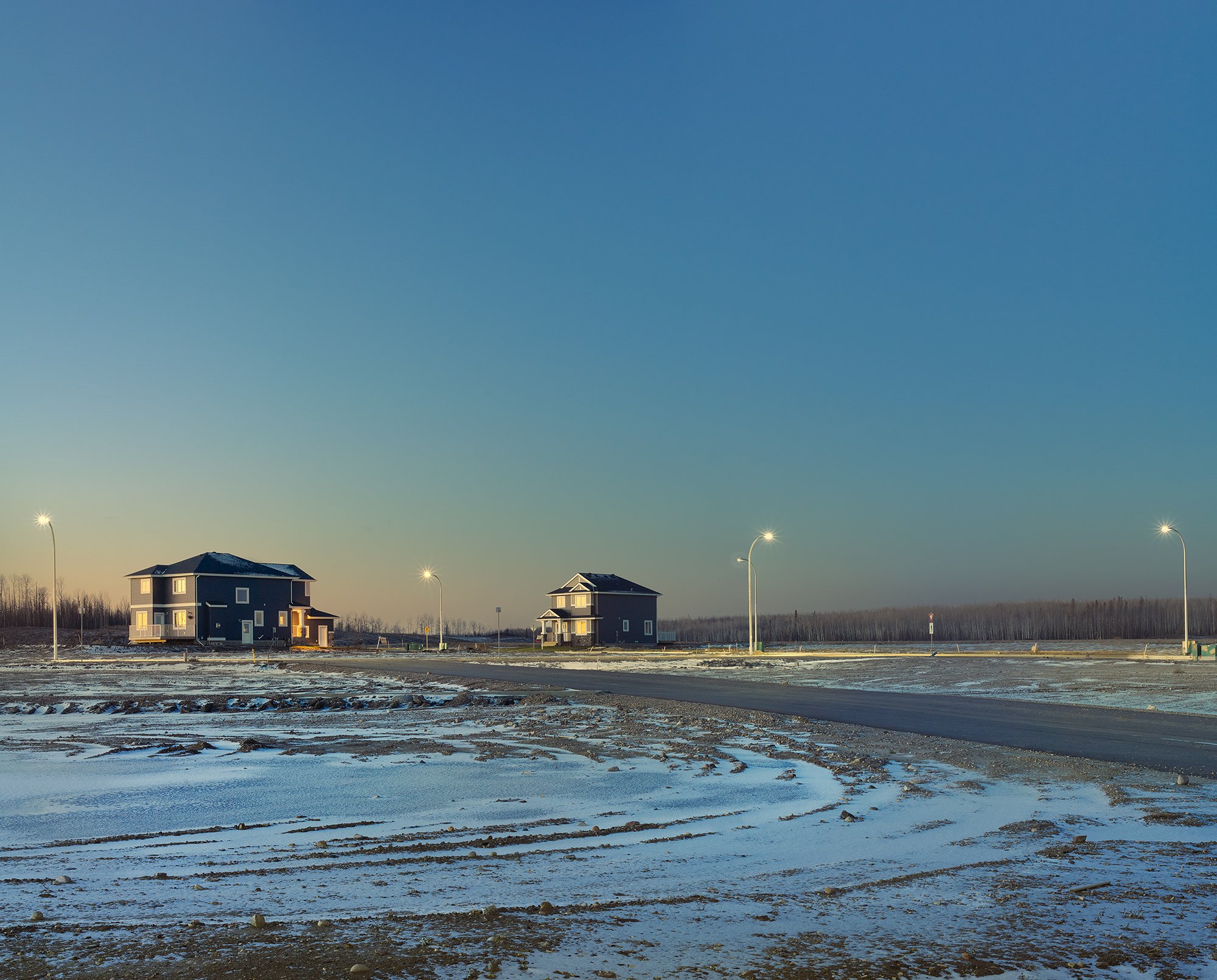
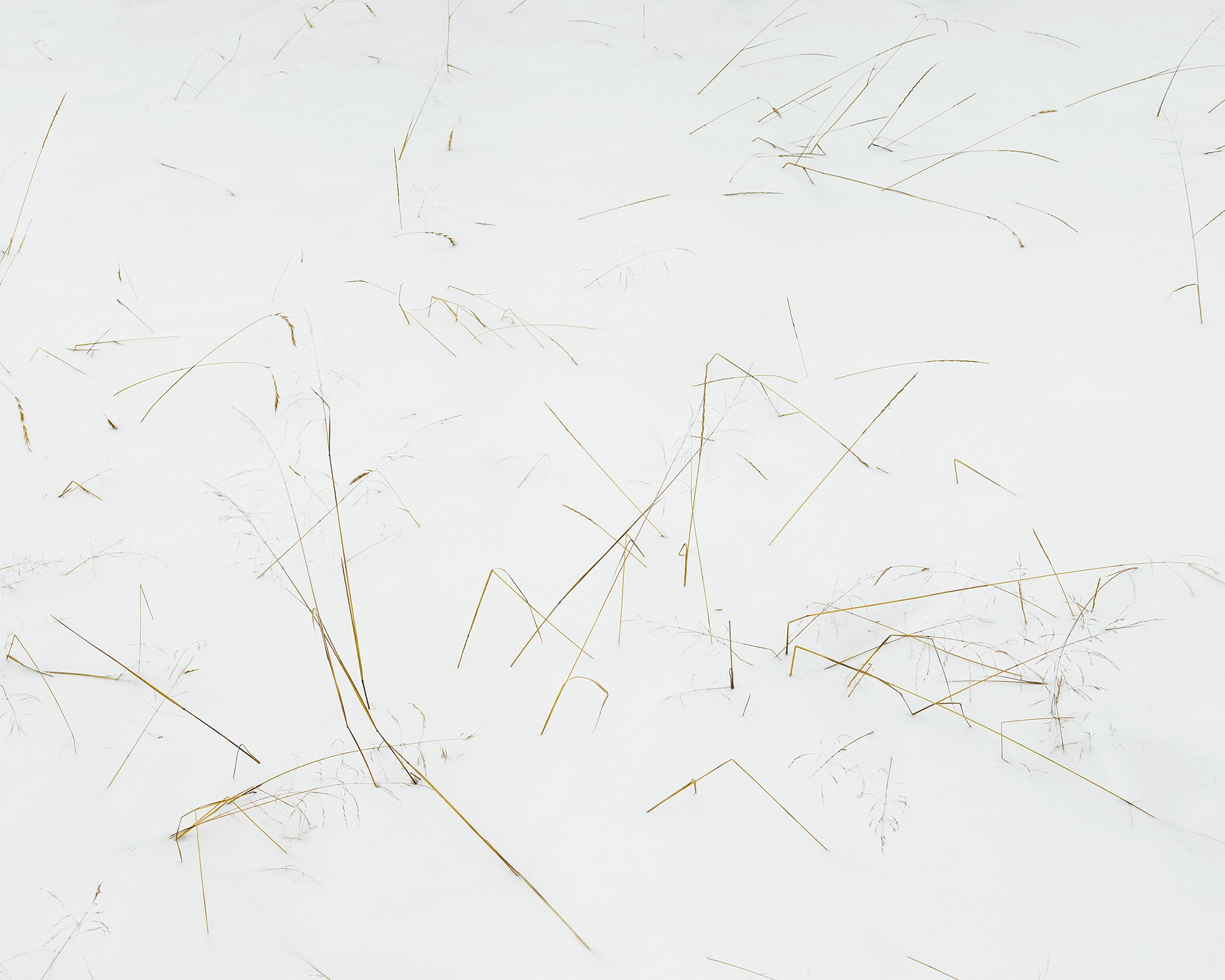
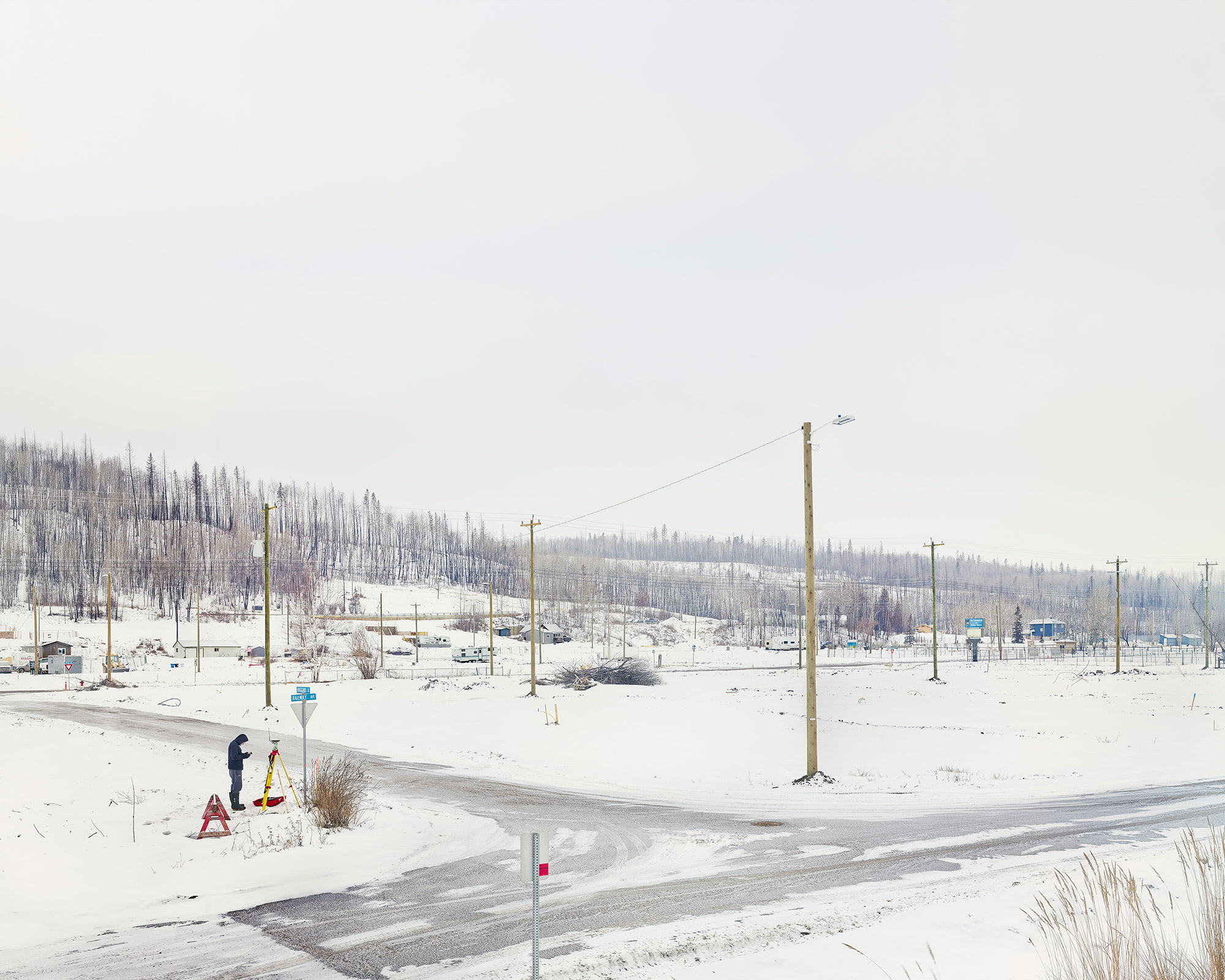
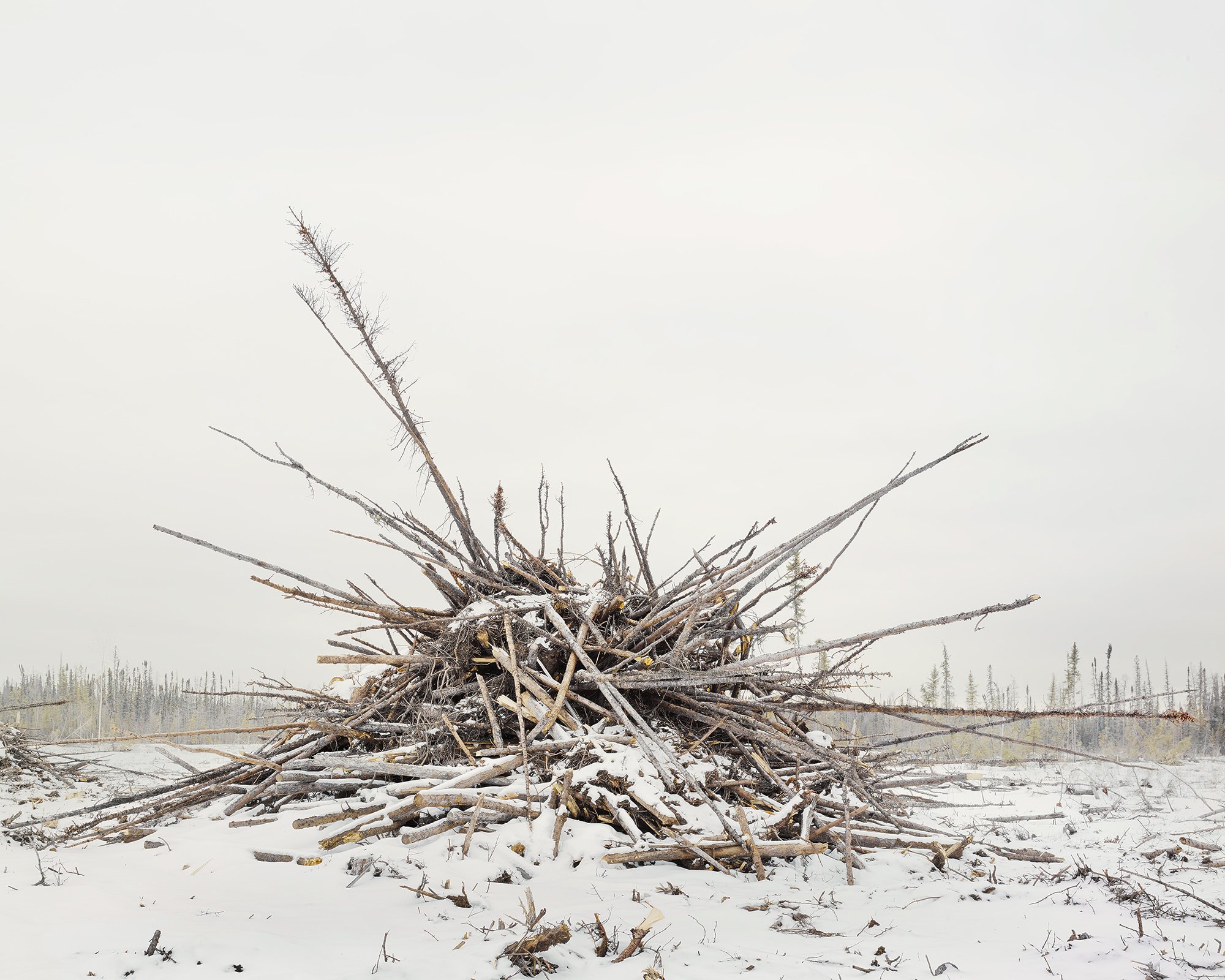
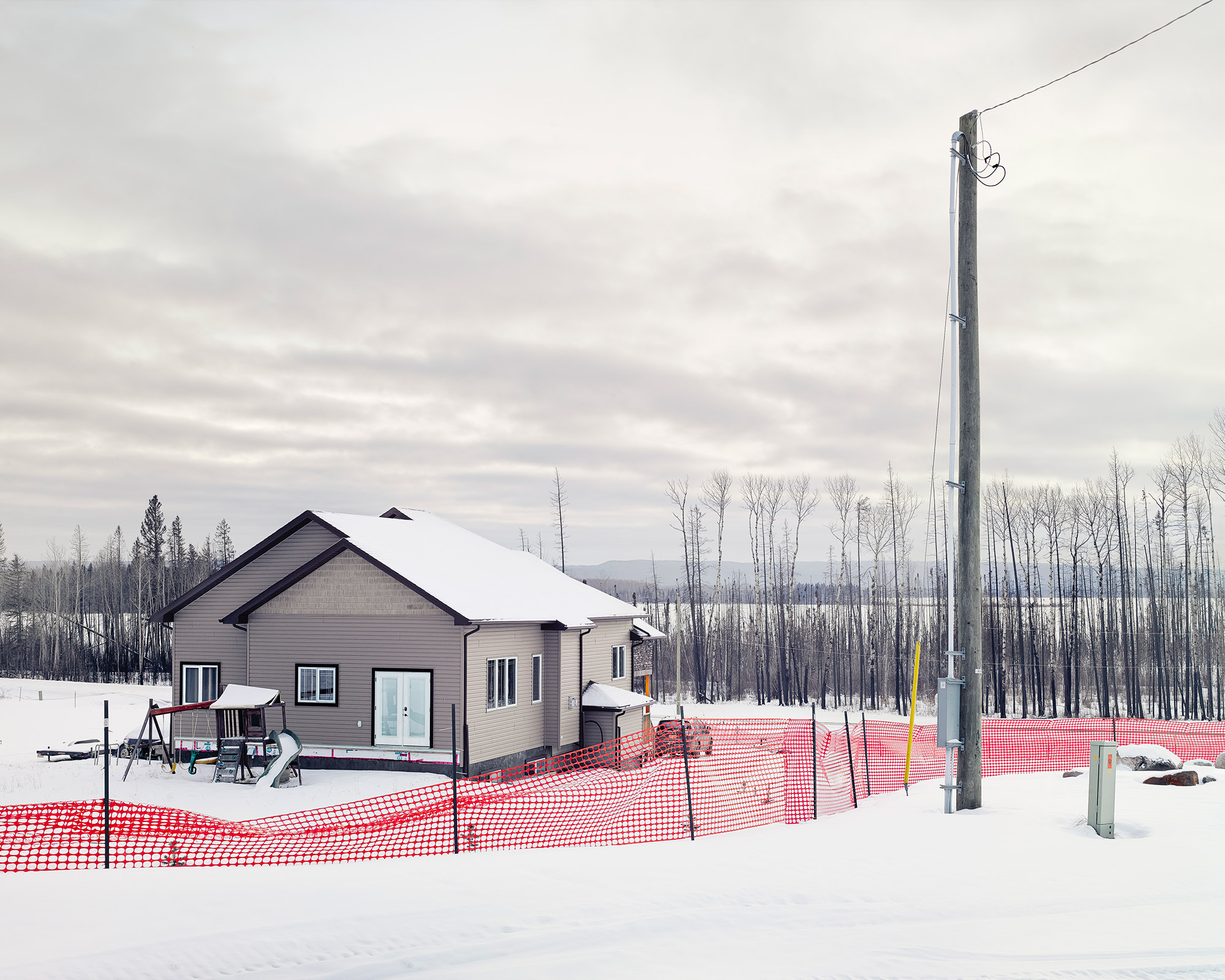

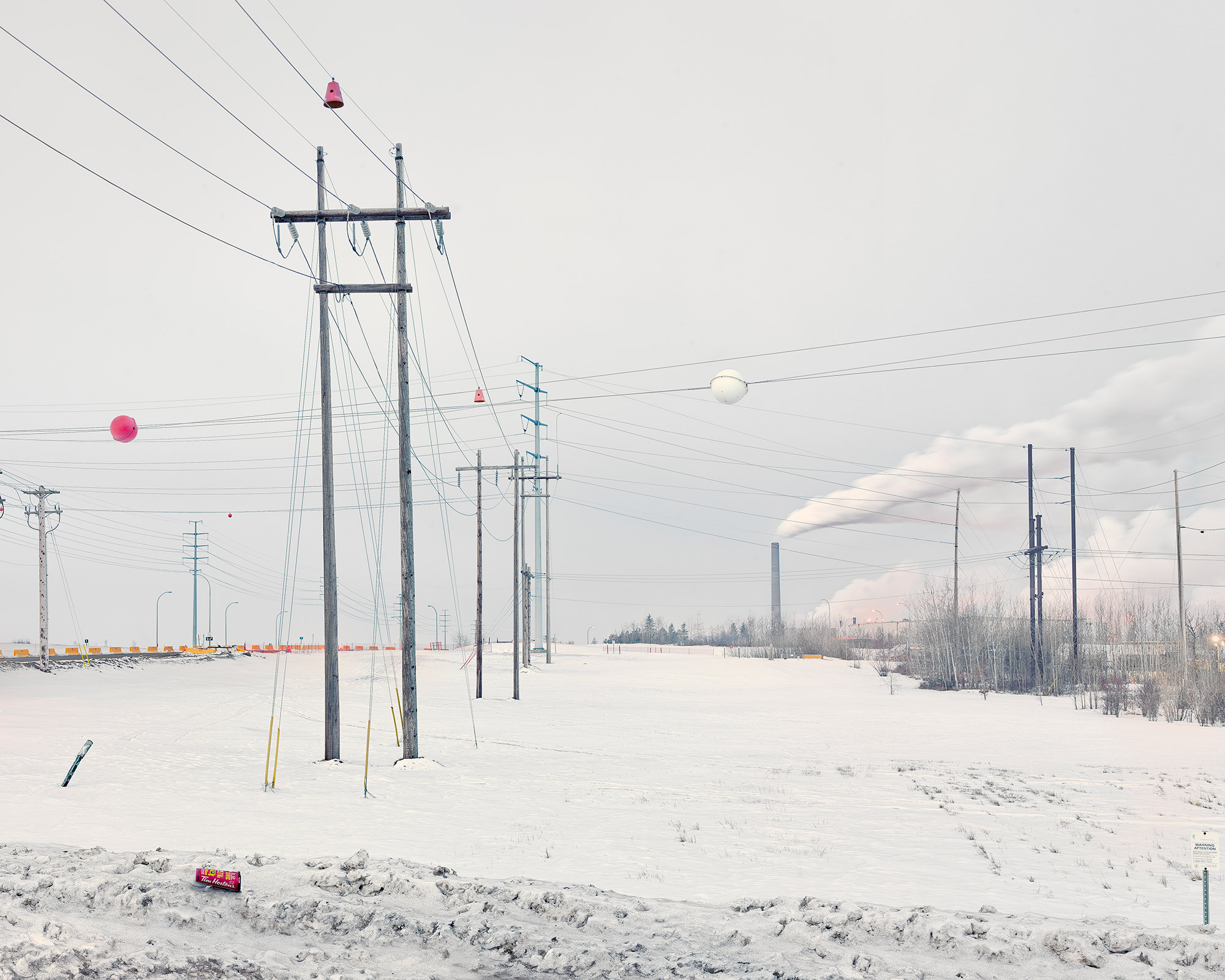
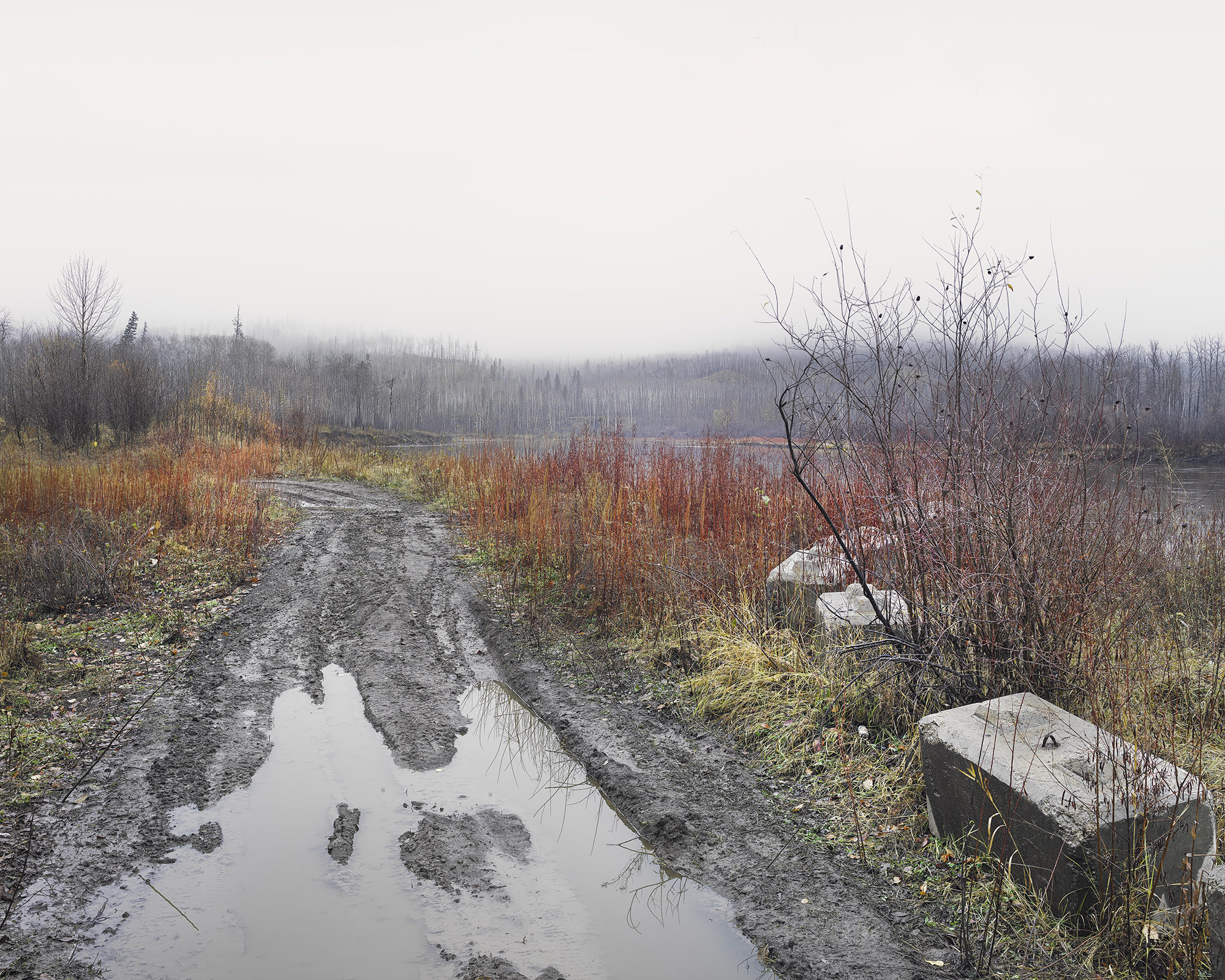
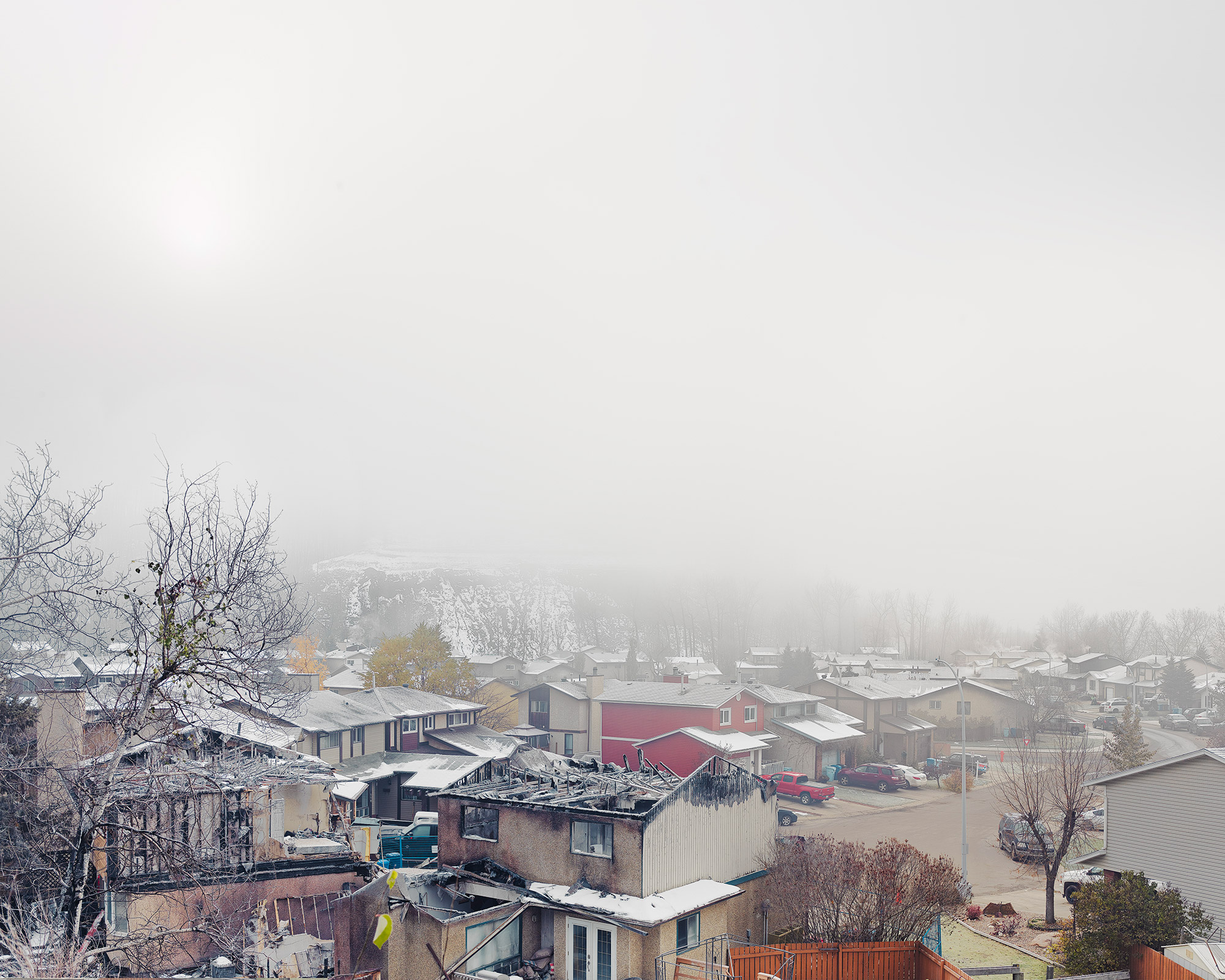
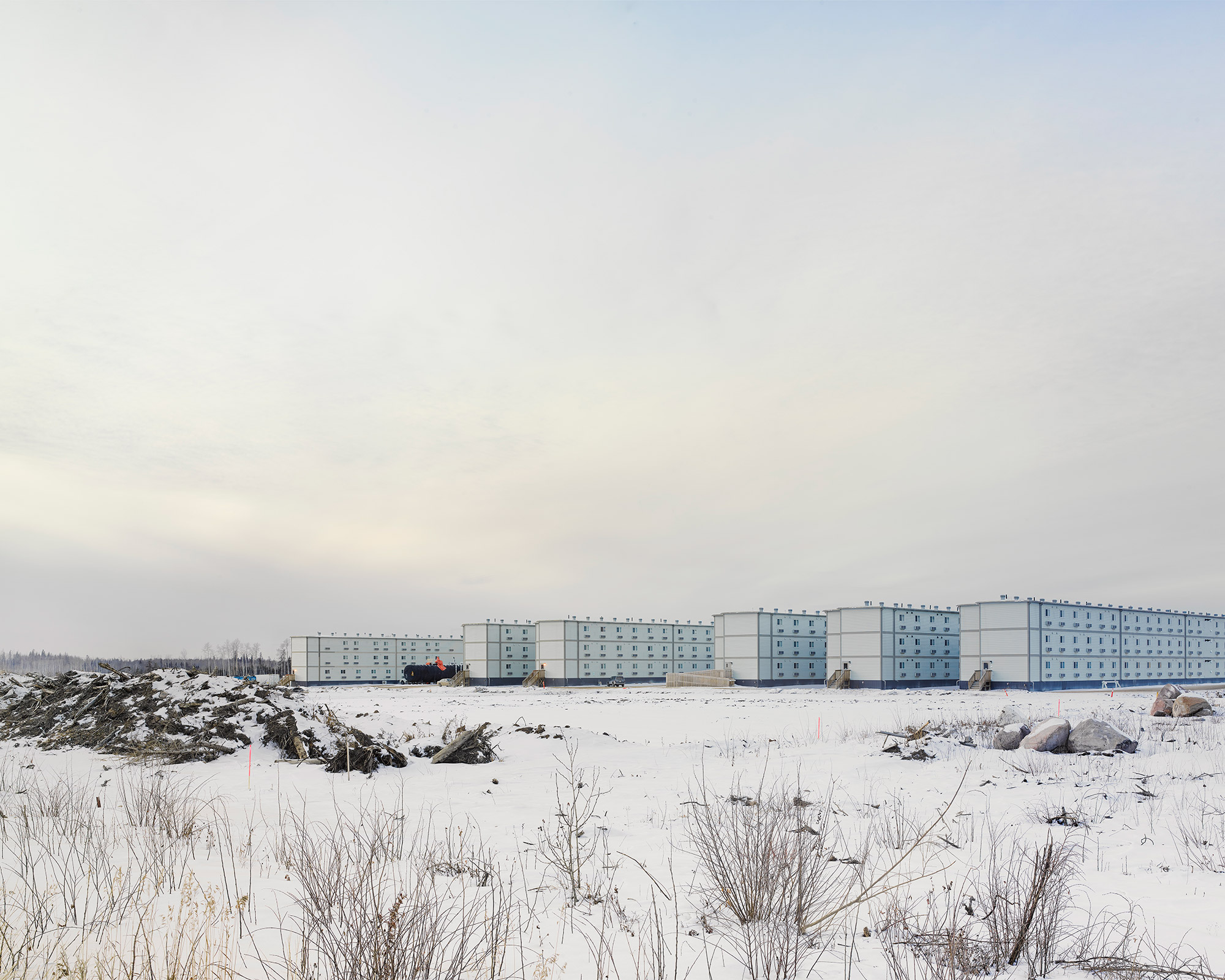
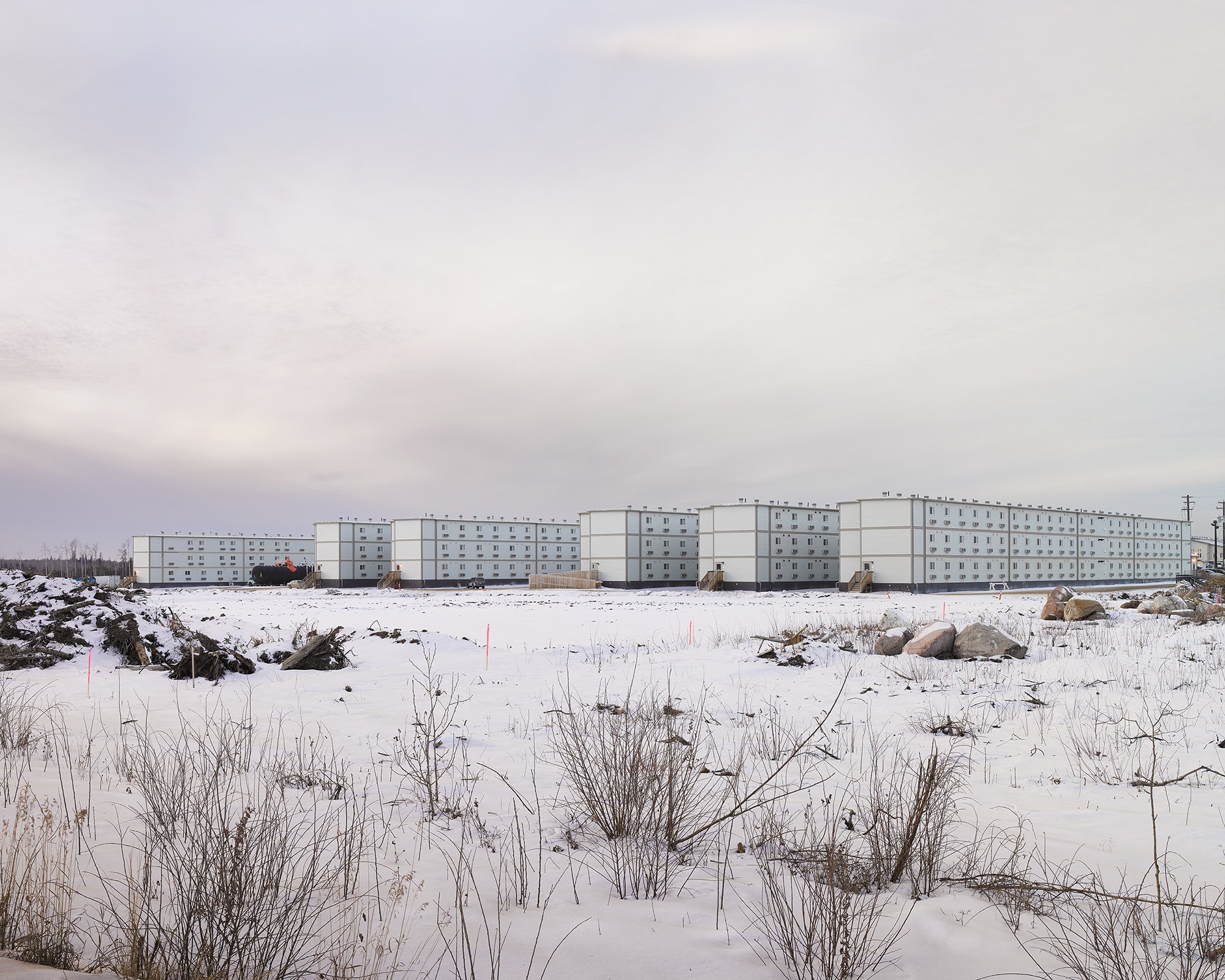
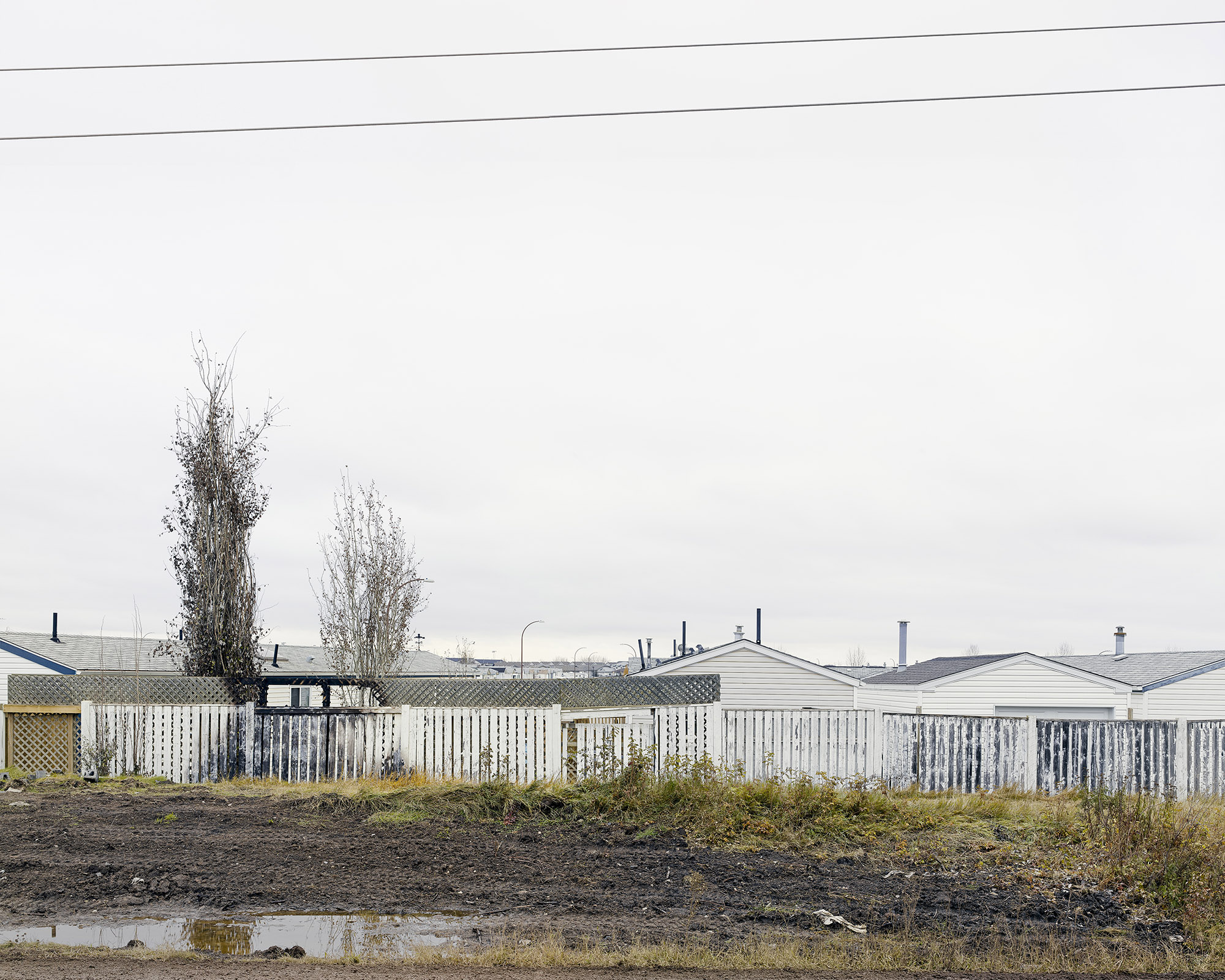
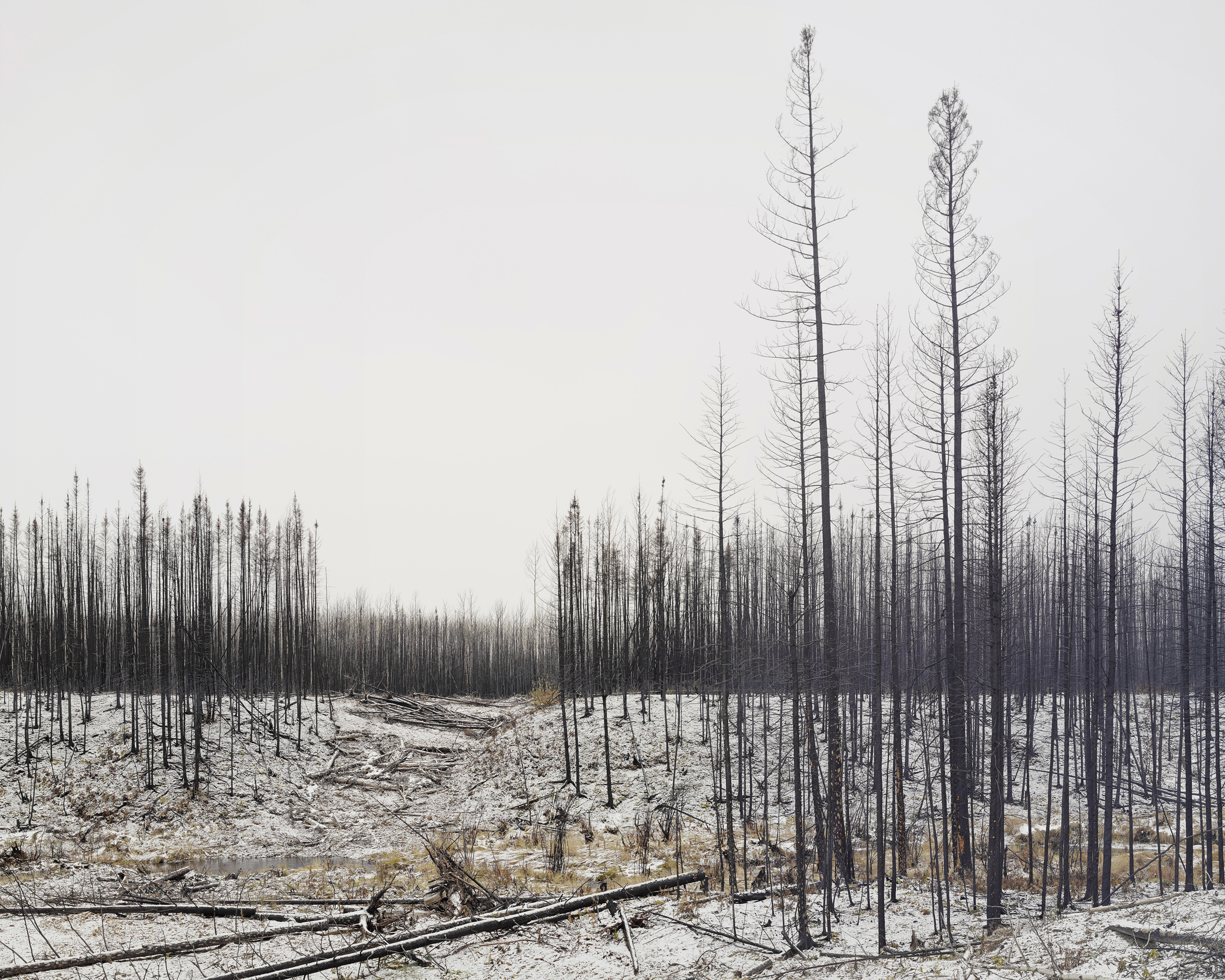
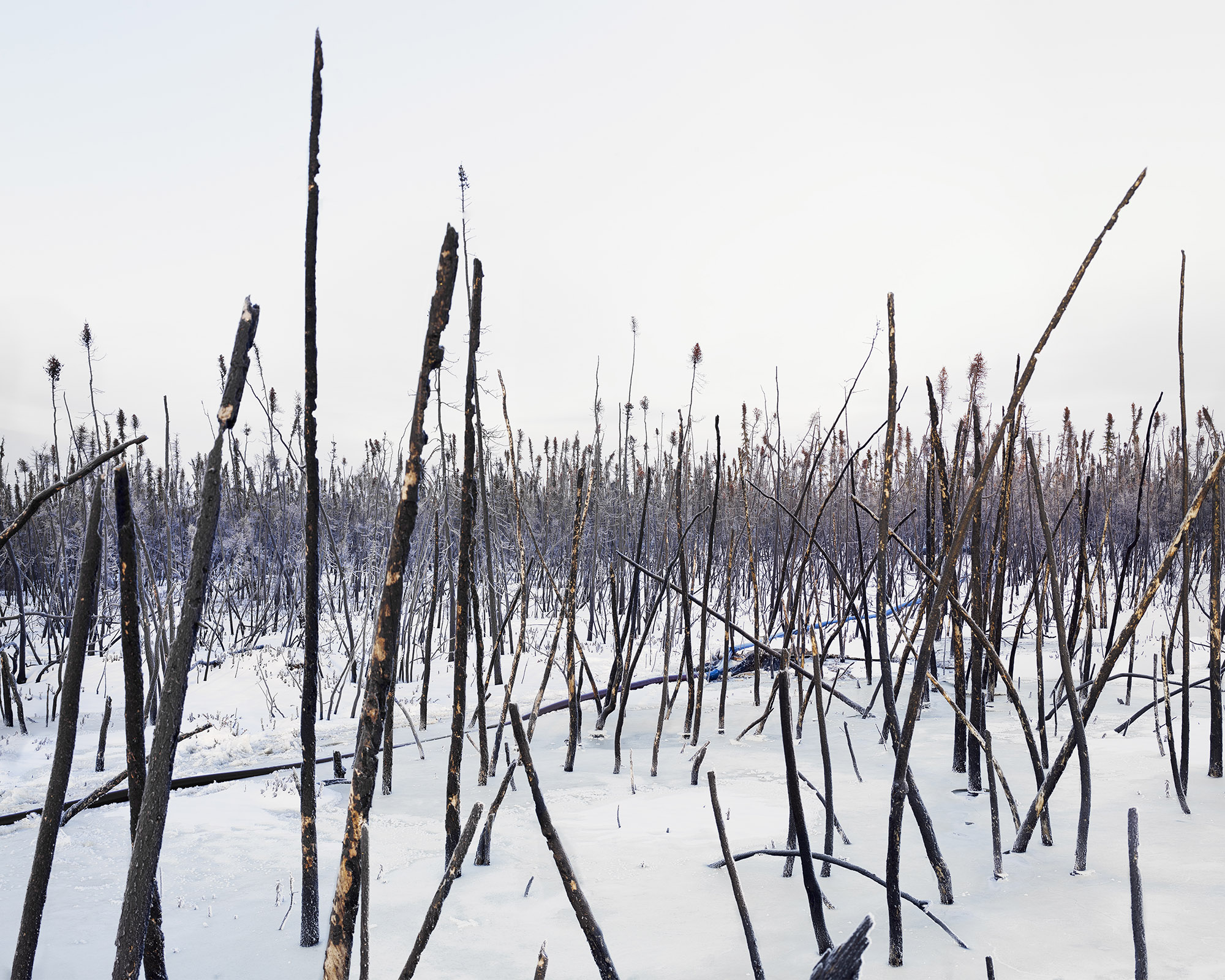
Project Gallery
All photographs were taken between 15 October 2016 and 28 February 2017 by Alan McFetridge.
Below is the essay abstract of So-Called Canada. Developed through conversations between Alan McFetridge and writer Antoinette Johnson, the essay aims to provide a wider perspective on the socio-political forces affecting forests and the well-being of people.
So-Called Canada
Finding an Anthropocentric-Biocentric Nexus in Fort McMurray
Antoinette Johnson
Essay Abstract
Located in the Boreal forest (Taiga), Fort McMurray is a penetrative case study for the perspectives and institutions responsible for the Climate Crisis. Here, I consider the contribution of the Fort McMurray Horse River Fire to pyrogeography within the realm of Social Action and this text is divided into two parts: 1) Ecological Thoughts, Misnomers and The Fire, and 2) Dismantling a Hegemonic Structure. Part One discusses the causes of the Fort McMurray Wildfire and the fire itself. This section finds a parallel in the social and industrial conditions that contribute to climate change, meanwhile, considering a kinship between the local industry’s dangerously polluting nature and anthropogenically modified fire regimes, colonial history and current resource exploitation, and the conditions under which the proletariat must participate in capitalism to survive. Part Two identifies the necessary changes Western society needs to make to effectively combat Climate Change and how we might be able to do so. Through landscape spectatorship, resource exploitation, and environmental dominance, the West has manufactured a fictitious hierarchy where humanity takes precedence over other living matter. Attempts to build sustainable and biodiverse futures will be unsuccessful as long as this sense of separation and dominance goes unchallenged.
Fort McMurray shows that approaches to Global Warming, if they are to be effective, need to be aware of society and culture, as much as they are environmental sciences. This is true to such an extent that even the language in which this discussion is had, terms such as ‘climate change’ and ‘nature,’ needs to be criticised because it can construct the possibilities for that discussion to make itself profitable for capitalism (discussed further in Part One). Conclusively, consideration of both scientific and social investigation is necessary when formulating immediate mitigation attempts for the climate crisis and long-term societal shifts that will change the way Western cultures experience Nature; arguing that approaches to the Climate Crisis can no longer be either Anthropocentric or Biocentric but must lie between.
Finally, Canada must respect and acknowledge Indigenous philosophy for it, unlike Western Culture, has centuries worth of history where humanity has co-existed with the rest of Nature. I argue that when considering the climate crisis and its effects on life in Canada, we cannot neglect the lives of First-Nations and, therefore, these communities deserve to have legislative representatives involved in governmental decisions to tackle climate change. The tragedy at Fort McMurray proves the significance of listening to the Anishinaabe peoples because they have been warning us of the effects of global warming in the Boreal Forest for decades, at least.
Acknowledgements
We acknowledge that this project was undertaken in the traditional territories of the Dane-zaa, Woodland Cree (Saāwithiniwak), and Chipewyan peoples.
To the people of Fort McMurray - past, present and future.
The Royal Photographic Society and The Photographic Angle Environmental Awareness Bursary
Songs of the Dead | Upcoming Monograph
As the planet heats, fires will worsen as a result of anthropogenic climate change.
To explain the complexity I found in the aftermath at Fort McMurray’s Horse River Wildfires of 2016, this monograph has been forming away on the studio walls for over five years with a range of iterations which are becoming realised. It includes a range of collaborators and therefore layers and facets which I believe has created a rounded view on this fire.
If you would like to support Songs of the Dead you can become a patron on Patreon
You can read a more detailed blog post by Antoinette Johnson, here.
Left: The prologue On The Line is available for purchase in our online shop.
Songs of the Dead | Features
*Prints are 152.5cm x 187cm including rebate. Framed gallery image on the Work index page is a concept of a 250cm x 312cm framed print.
Exhibition Details, 2019
Wedge Gallery, Sydney
The International Marianne Brandt Award centres around the role of poetics and functionality. The 8th Triennial Award asked artists and designers how that which connects us with other living beings and habitats that can be newly discovered and designed. As they were seeking projects with cooperative, aesthetic, metaphorical, and poetic exchanging relationships with other organisms and natural existences. We felt it would be an excellent exercise to present part of the Song of the Dead work to the Jury.
I Am Weary of the Poets, 2017 © Alan McFetridge
Earth Day Reflections
You can read more about how we approach the work we do through a framework that centres not only on the well-being of the planet we call home but also on the multitude of people whose perspectives are missing from institutionalised thinking.
On The Line
Songs of the Dead is a continuation of the work started in our previous publication, On The Line, which has limited remaining copies available in our store.
For further information on this project please contact the Studio
All images © Alan McFetridge


